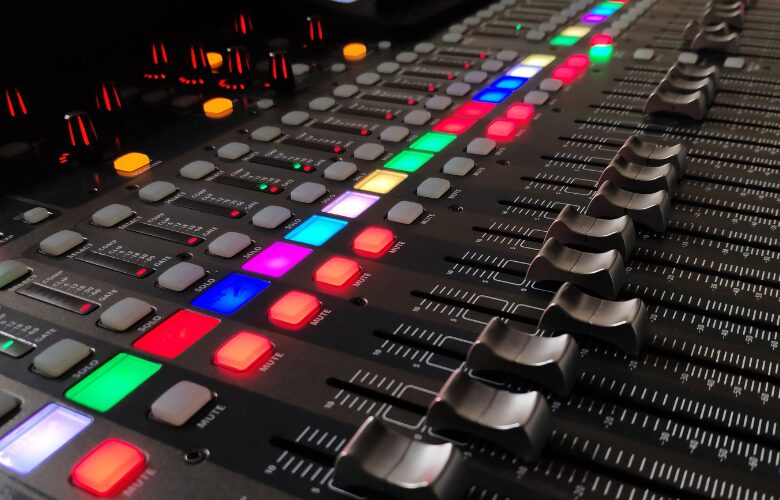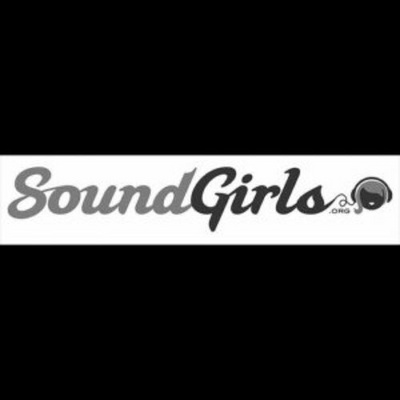Being An Autistic Woman In Audio

It’s been almost a year since I interviewed for what, at the time, I considered to be my “dream job” in audio. A few days beforehand, I received an email informing me that there would be a short technical exercise in the studio prior to the interview itself, designed to give them an idea of how comfortable I was using a mixing console.
Unfortunately things did not go to plan, in any way. The “short technical exercise” turned out to be a series of complicated tasks lasting nearly an hour, on a system I’d never used before (and which was only available within this particular company). It was followed by a string of questions about how I’d go about solving various hypothetical problems (and this was before we’d even got to the actual interview). Every time I thought I had a satisfactory answer, they’d come up with another reason why it would fail. I’d have to find yet another solution, and so on, until I inevitably ran out of options. All the while, the interviewers on the panel kept looking at me—and then each other—with expressions I struggled to decipher, while making notes about my answers.
Needless to say I didn’t get the job. Afterwards I felt completely exhausted by the whole ordeal and spent the next two days recovering at home. So much importance is placed on appearing confident and calm in interviews. Admitting you really struggle with them is frowned upon in case it reflects badly on you as a professional; no one wants to give the impression they can’t handle it. I was ashamed and embarrassed about the fact that I always seemed to fail miserably at interviews, despite knowing that I had so much to offer. No matter how much I tried to prepare for what I might be asked, it never worked out. It was always the same story.
That interview wasn’t the only challenge in my life at the time. Something I didn’t realise until later was that I was also in severe burnout. Everything seemed to be falling apart bit by bit. I thought there was something horribly wrong with me and couldn’t figure out what it was. In the end I discovered there wasn’t anything wrong with me, but something different.
I am autistic
My journey into the world of theatre sound (having abandoned my previous idea of what my “dream job” looked like) coincided with my journey towards self-acceptance, learning who I actually am, and how my brain works. Getting my autism diagnosis has come with a roller coaster of emotions. There’s the relief of finally being able to make sense of past experiences and struggles and the differences I always sensed about myself, but couldn’t quite pinpoint. There’s also the frustration of things not being noticed as early as they could have been, and of going through adolescence without the support I and the adults around me didn’t know I needed. I’m now also learning how all of this fits in with my current career trajectory.
Like many autistic people, I have various sensory processing challenges, one of which relates to sound. Competing noises really bother me: people talking over each other, making it impossible for me to follow a conversation, and certain harsher sounds drive me crazy. I’m also one of those people who can hear the high-pitched whine of a phone charger plugged in on the other side of the room. When it comes to my work, however, my sensitivity can be a big advantage. It allows me to pick up on unwanted frequencies quickly and hopefully make good judgement calls as a result.
I can also lean on other strengths that typically make autistic people excellent employees across multiple industries, like attention to detail and hyper-focus. These things all make me better at what I do. So does my honesty, my direct communication and my absolute commitment to a task.
However, while neurodivergent people have so much to offer in the workplace and that should be celebrated, it’s also important to acknowledge that there will likely be challenges we need support with. This is because too many workplaces are simply not designed to accommodate differently wired brains. The idea of providing reasonable adjustments seems to be off-putting to some employers (in all types of industries), but in most cases people are not asking for things that are complicated to implement. What an autistic person needs from their employer will depend on the type of job they are working in, as well as the fact that autism presents differently in each individual person. But generally speaking, having the ability to take regular breaks, making sure work spaces are as sensory-friendly as possible, and being given enough time to process information are things that can make a huge difference to an autistic person’s well being at work.
But unfortunately this doesn’t always happen, and I have found that theatre is no exception. In the UK, there are organisations and initiatives which aim to increase representation and promote inclusion on stage and among audiences. But in my experience to date, the needs of neurodivergent/disabled theatre technicians are not as widely discussed.
Until I experienced the stress and intensity of tech week, I had no idea what I was letting myself in for. The hours are long and there is so much going on sensory-wise that autistic burnout is a big risk. I personally found it absolutely vital to step away as often as possible and take a breather (preferably in a quiet space with low lighting). I won’t pretend this is a straightforward thing to do when people are asking you for multiple things at once and this task, that you only found out about five minutes ago, needs to be done right now, in as fast a time as possible (not fun when delayed processing comes into play). But as an industry I really believe we need to take a look at our whole approach to tech, and bear in mind that there may well be neurodivergent people within your department who need understanding and compassion (of course, prioritising well-being is something we should be doing for everyone, because no one should have to make themselves ill with stress in order to do their best work).
This likely won’t be the last thing I write here about neurodiversity. But to conclude things for now, I want to return to the topic I began with: interviews. A year on from that incredibly difficult experience, I had an interview with a company that made reasonable adjustments when I disclosed my autism during the application process. They sent me a list of questions beforehand: a simple act that made a massive difference by allowing me to focus completely on the best things to say about myself, rather than worry about my tone of voice/body language/level of eye contact and how this would be perceived. Yes, there may still be interviewers who are not prepared to see past this stuff, but that’s their problem, not mine. Because I’m finally learning that I should never have to hide or suppress those parts of myself that are different. Not weird, or wrong. Just different.
And that is okay.
Article by: Sarah Stacey
Back to Home
Editor's Note: At StageLync, an international platform for the performing arts, we celebrate the diversity of our writers' backgrounds. We recognize and support their choice to use either American or British English in their articles, respecting their individual preferences and origins. This policy allows us to embrace a wide range of linguistic expressions, enriching our content and reflecting the global nature of our community.
🎧 Join us on the StageLync Podcast for inspiring stories from the world of performing arts! Tune in to hear from the creative minds who bring magic to life, both onstage and behind the scenes. 🎙️ 👉 Listen now!
